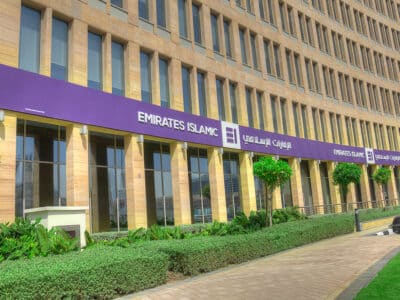Venture capital (VC) investment into fintech companies based in the Middle East and North Africa (MENA) exploded in 2021 and continues to grow this year.
According to a recent Magnitt report, funding for MENA startups more than doubled on an annual basis in Q1 to about $864 million, with fintechs accounting for 41 percent of total funding raised.
That represents a lot of paper money made by founders, employees, venture capitalists and community partners.
By our count, 17 “neobank” projects launched or are being launched, each with over $100 million in committed investment. Some intend to invest many multiples of that.
This isn’t an outcome in and of itself. No one has “won” when a large amount of money is invested. In fact, it is better characterised as a starting point.
But irrespective of where we now sit on the economic lifecycle, last year was certainly a milestone that has impacted the dynamics around entrepreneurship in our region.
Did this result from a multitude of regional and global factors that converged at a particular time? Was it the culmination of a well-engineered plan that played out over several years? Or was the MENA region simply riding the coattails of a broader global boom in fintech funding?
Behind the boom
Think about 2014 as a point of origin. A glut in global oil supply depressed prices for a sustained period. Analysts began paying more than just lip service to “energy transition” as long-term government forecasts were adjusted to assume lower oil sales and prices.
Forward-looking budgets no longer made sense, with most concluding that the move toward knowledge-based economies was now urgent. The various regional “Vision” plans all assumed a need to invest in technology.
Tech investing at that point was not an unknown concept. GCC sovereign wealth funds (SWFs) had quietly been some of the earliest, largest and most influential investors in global venture capital funds since the beginning of Silicon Valley and done very well as a result.
What was new was the prerogative that this investment needed to be directly felt in the country that was doing the investing. With the benefit of hindsight, the effect of this new prerogative seems to have played out as an iterative process.
The first step was to use long-standing venture relationships to financially back marquee global companies and funds, such as Uber and SoftBank.
This was followed by engagement with those investees on what would attract them to the region and to listen to their concerns.
I wasn’t in the room for those conversations, but if the question was asked, I can tell you that they would have expressed a need for robust tech infrastructure on which to roll out their products; a strong pipeline of startup companies to invest into or to use their tech services; progressive and predictable regulatory regimes that would allow them to “play”; and access to a large number of young, digital-first people to buy their product or to work for them.

The next phase was to begin implementing changes to address those concerns, followed by their entry into the market. Which did indeed happen. Native and international incubators and accelerators set up by the droves.
Uber and Amazon bought local operators in big, box office acquisitions; Amazon, Alibaba and Google invested cold hard cash into ambitious regional projects.
Fixing the bugs
This backdrop brings us to what we regional VCs view as an inflection point that happened around mid/end 2019, when the SWFs and other institutional pools of money across the region turned their vast coffers directly towards the regional startup ecosystem.
Saudi Arabia’s PIF, SVC and Sanabel; ADQ and Mubadala in Abu Dhabi; and Al Waha Fund of Funds in Bahrain (to name just a few) all set up programs specifically for venture capital managers to back regional startups.
And they were right to do so. The MENA is brimming with industrious, talented people who recognise the shortcomings in their own environments. They only needed a nudge to trade stability for a risk/reward proposition.
And as more ingenious ideas churned out of increasingly sophisticated and selective incubator programs, one challenge to efficient progress became obvious: how the money flows.
This “layer 1” problem was exposed and exacerbated by Covid-19. The surge in digital services revealed woefully inadequate payment processes. Businesses struggled to collect for online sales.
New companies could not open bank accounts without cumbersome physical processes. It was almost impossible for small or early-stage businesses to get a loan. Virtual-first companies couldn’t manage their payroll or expenses.
Meanwhile, fintech globally was experiencing a funding boom, jumping 68 percent to $210 billion in 2021, according to KPMG. Concurrently, the crypto economy came roaring back to life.
We were able to map specific blueprints for business models that could scale rapidly in other markets, giving more confidence to invest early, and we also welcomed with open arms a number of international VCs, fresh off fintech successes in other parts of the world, hunting for the same type of gold in an unexplored market.
Their presence contributed to a virtuous cycle of funding and growth, which has created companies that now show real year-on-year growth rates of three-, five- or even 10-x.
To conclude, this convergence of the redirection of sovereign capital into the regional ecosystem, the realisation that fintech had a foundational problem, the tailwinds from a global funding boom, and the effects of Covid-19 have resulted in what is, for this region, a once-in-a-generation opportunity for many founders and VCs.
What does it mean and what happens next? We’ll have to think about those and come back to you in the next installment of this three-part series.








